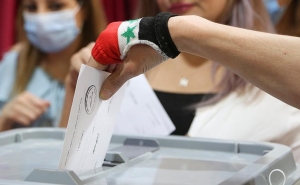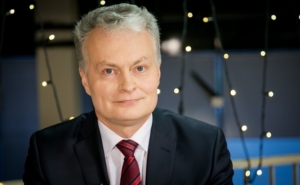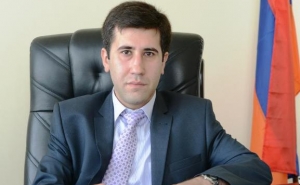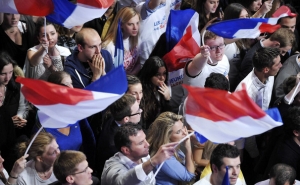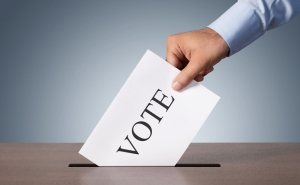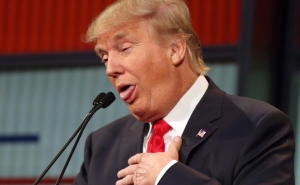Irrespective of Election Results, Iranian Policy Towards Armenia Will Not Change (EXCLUSIVE)
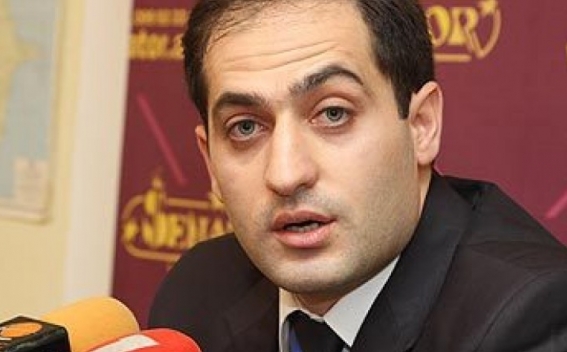
"Armedia" IAA presents an exclusive interview with an expert on Iranian studies Armen Israyelyan about May 19 presidential elections in Iran.
- How do these elections differ from the previous ones?
- The peculiarity of 2017 presidential elections is the fact that they take place after the agreement signed between Iran and 5+1 group; the one, which was among other issues on the Iranian agenda and had its direct impact on the internal and foreign policy of the country.
Consequently after the nuclear agreement, the expectations of the society in Iran are extremely big, as for years Iran was under the pressure of economic sanctions. Thus, it is quite understandable, that the pivotal issue among the campaign topics refers to the nuclear agreement and its positive and negative impact on Iran’s internal and foreign policy.
Naturally, the acting reformist president Hasan Rouhani presents the nuclear agreement as an important achievement, while his opponents, conservative candidates Mohammad Bagher Ghalibaf and Ebrahim Raisi question it productivity.
The peculiarity of these elections was also the fact that the campaign was actively covered by social media and the candidates presented their advantages in different ways, at the same time underlining an opponent’s drawbacks.
- What were the social moods on the eve of elections? Do pre-election campaign and debates have an impact on the orientation of voters?
- On the eve, when one of the main opponents of the acting president, Tehran mayor Mohammad Bagher Ghalibaf gave up the race in favor of Ebrahim Rayisii, some clarification of the situation was among the voters, who were prone to give their vote to conservatives, learned clearly that the conservatives were united around Ebrahim Raisii.
What refers to debates, then I think that all the three debates conducted had no essential impact on voters’ orientation.
According to one of the latest social surveys, to the question, in case there are only two candidates, Hasan Rouhani and Ebrahim Raisi, to whom they will give their vote, 48% of voters were for the acting president, while 39% for conservative candidate Ebrahim Raisi.
- Dիդ the candidates refer to the Armenian community or to the issues referring to Armenian in the election campaign?
During the campaign, the candidates referred to the foreign policy issues in the context of the nuclear agreement. In addition, Supreme Leader Ali Khamenei urged the candidates not to give way to the demands of the United States to give more and stand firm against Israel.
What refers to the Armenian community, the acting president Hasan Rouhani referred to the rights of religious minorities (among them also to Armenians) and ethnic groups during the second debate. In their turn the Armenians in Iran are free in their choice and have no orientations towards any of the candidates.
Referring to the prospect of the relations with Armenia, we can state, that in case of the victory of any of the candidates, the foreign policy priorities of Iran towards Armenian will not change.
Other materials on this subject
- Iran denies reports on joint construction of UAV plant with Russia "Arms exporters and instigators of wars seek to justify their unilateral actions and blunders in plotting war by falsifying news," he responded to Mehr's request for comment on the newspaper's report....
- Azerbaijani MFA issues anti-Iranian statement The Ministry noted that about 100 countries and secretariats of several international organizations condemned the armed attack on the Azerbaijani diplomatic mission in Iran, stressing the need to punish...
- Iran condemns sanctions imposed by EU, Britain and threatens retaliation The European Union imposed sanctions on more than 30 Iranian officials and organisations, including units of the powerful Revolutionary Guards, blaming them for a "brutal" crackdown on unrest and other...
- Zohouri: Armenia's security is Iran's security "I hope that this cooperation as two ancient and centuries-old countries will further develop. Work is being carried out in different directions, related to the road, economic cooperation, etc., which...
- Russia, Iran are negotiating creation of common steblecoin on gold The Iranian government intends to secure this token with gold, that is, it will be a kind of steblecoin. The token is expected to work in a special economic zone in Astrakhan, which will receive cargo...
-
 17:08
17:08The regular session of the Anti-corruption Policy Council takes place in Jermuk
-
 15:05
15:05The Prime Minister sends congratulatory messages to the supreme leader of Iran and the President of Iran
-
 11:11
11:11Armenia sends earthquake aid to Turkey
-
 10:43
10:43Commemoration of the Pontiff St. Sahak Partev
-
 09:16
09:16Some roads are closed and difficult to pass in Armenia
-
 19:55
19:55Phone conversation of the Foreign Minister of Armenia with the U.S. Assistant Secretary of State for European and Eurasian Affairs
-
 18:30
18:30Prime Minister Pashinyan and President Khachaturyan meet
-
 18:20
18:20Ararat Mirzoyan with Co-Chairman of the OSCE Minsk Group of France Brice Roquefeuil
-
 17:01
17:01Humans could land on Mars within 10 years, Musk predicts
-
 16:45
16:45France, US urge 'immediate' end to Nagorno Karabakh blockade
-
 16:01
16:01Blockaded Nagorno Karabakh launches fundraiser to support quake-hit Syria
-
 15:59
15:59Earthquake death toll in Turkey rises to 18,342
-
 15:43
15:43Ararat Mirzoyan Held a Telephone Conversation with Sergey Lavrov
-
 15:06
15:06French president rules out fighter jet supplies to Ukraine in near future
-
 14:47
14:475 Day Weather Forecast in Armenia
-
 14:44
14:44President Vahagn Khachaturyan wrote a note in the book of condolences opened in the Embassy of Syria in Armenia
-
 14:20
14:20Azerbaijan’s provocations impede establishment of peace and stability – Armenian FM tells Russian Co-Chair of OSCE MG
-
 12:57
12:57France representation to OSCE: Paris calls on Azerbaijan to restore freedom of movement through Lachin corridor
-
 11:40
11:40Command of Kosovo forces highly appreciated preparation of Armenian peacekeepers
-
 10:16
10:16The United States withdrew from sanctions against Syria for six months the provision of assistance after the earthquake
day
week
month
Humidity: 62%
Wind: 2.06 km/h


